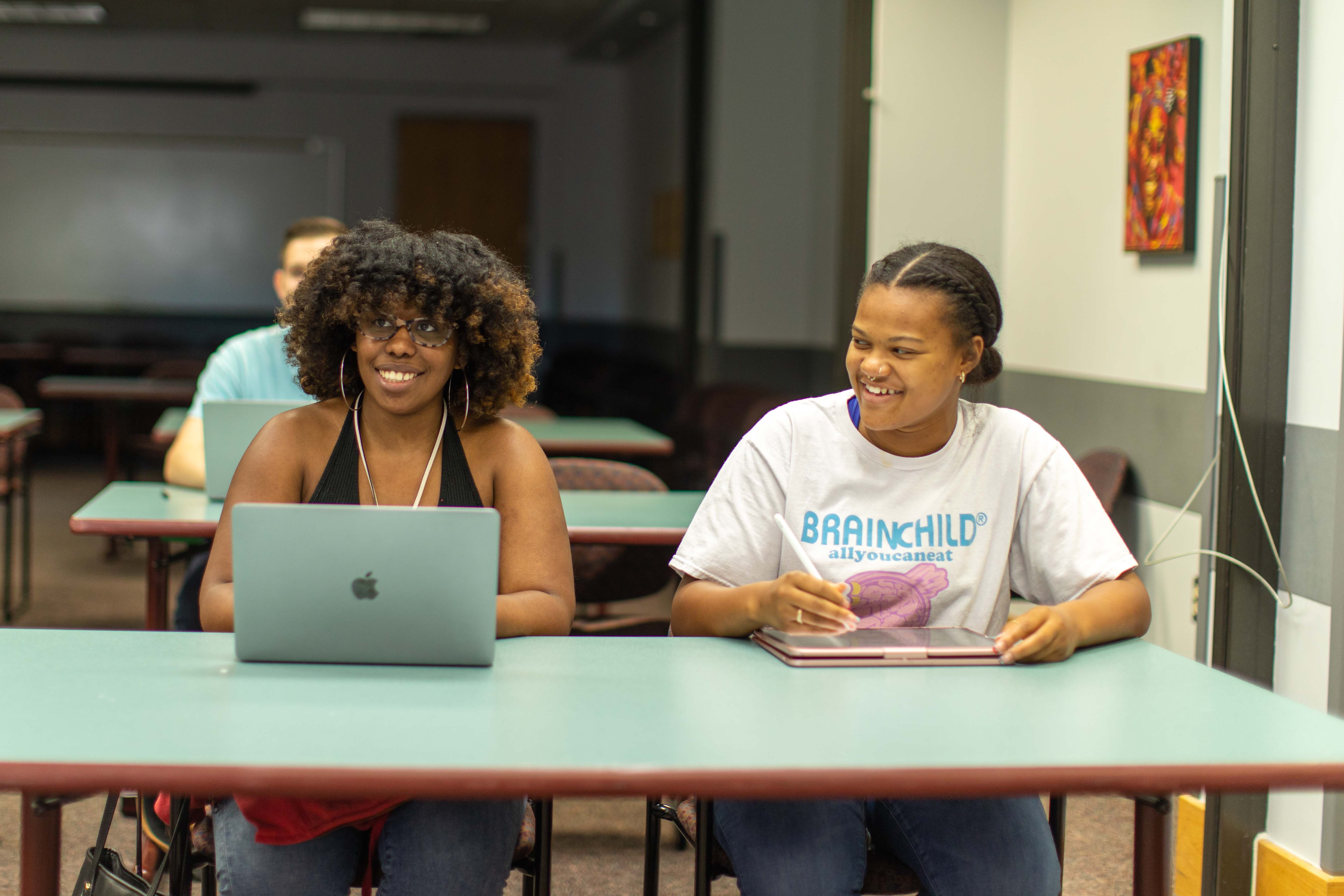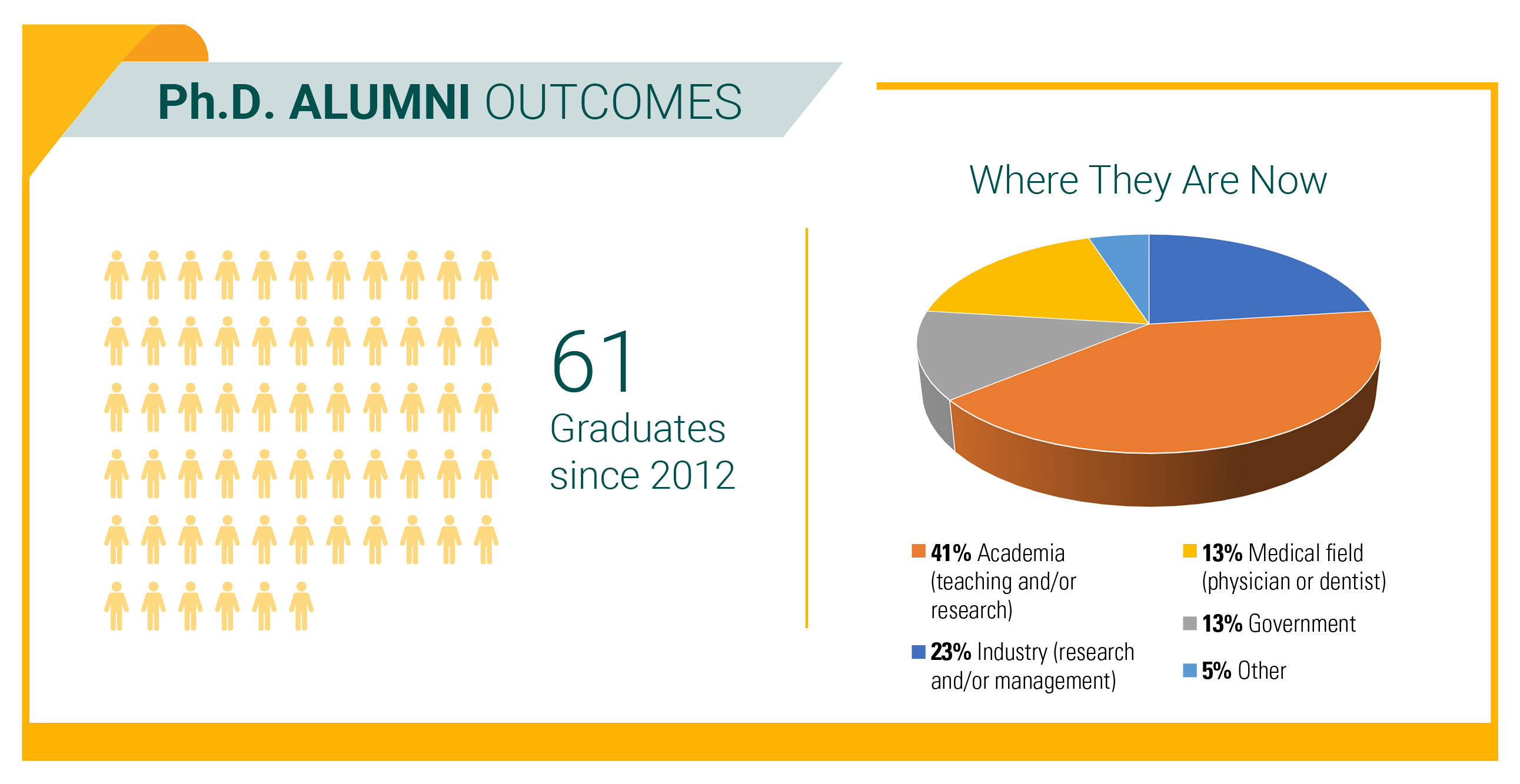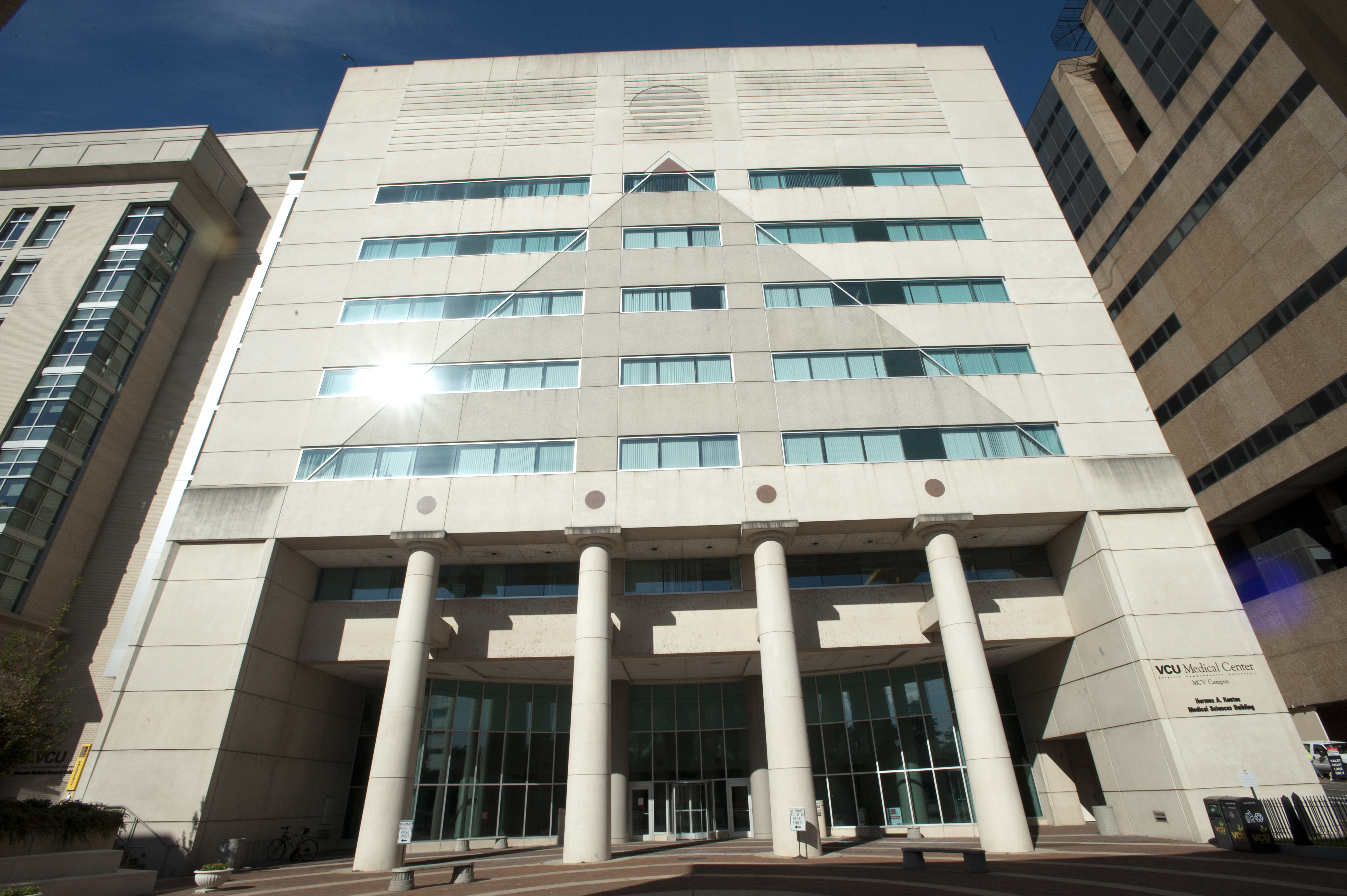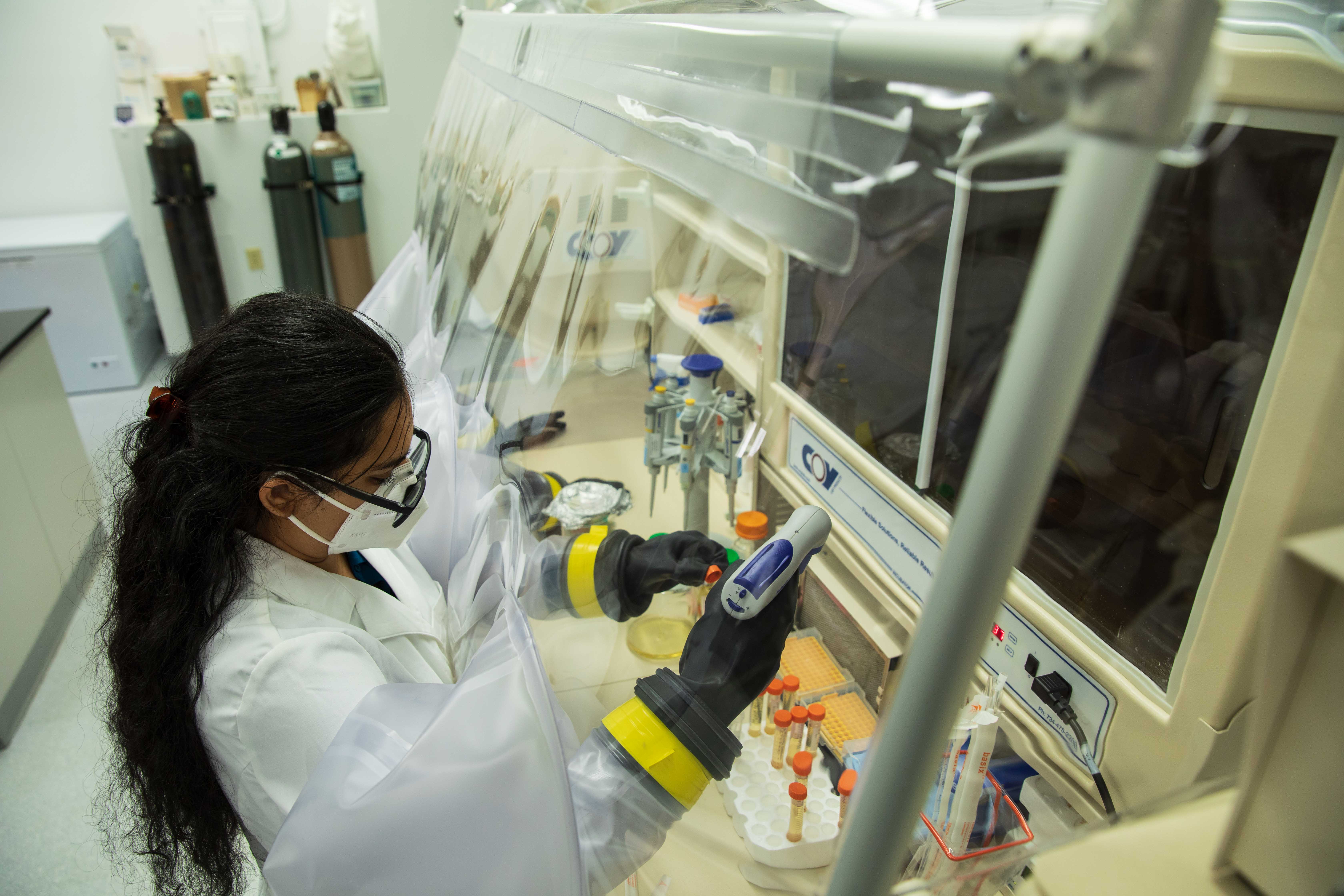Designed to prepare students for research-oriented careers in academia, government or the private sector, our Ph.D. program provides a foundational background in the biosciences, with courses to match the needs and interests of each student. Graduate students work closely with department faculty to conduct rigorous, independent research projects in one of the following areas of microbiology and immunology:


Program Structure
Matriculating students enter the School of Medicine graduate programs through the Biomedical Sciences Doctoral Portal, or BSDP, which oversees admissions for six of the school’s doctoral programs. First-year coursework includes foundational and elective courses, plus 10-week rotations through three faculty laboratories to explore research areas of interest. The BSDP provides flexibility, allowing students with varied interests to combine coursework and lab experience across multiple basic health science departments.
By the end of the first year, students choose a specialty and faculty advisor, enter a Ph.D. program and join a research lab for their dissertation project.
Explore the Ph.D. degree requirements here ❯
Explore the Ph.D. admission requirements here ❯
In year two, students will complete remaining coursework, participate in seminars and journal club and shift their attention to active research. In collaboration with their adviser, students will choose a dissertation project and form their graduate advisory committee. In collaboration with their advisor, students choose a tentative dissertation project by the start of the fall semester and identify faculty to serve as members of their graduate advisory committee.
Students focus on their research project and related activities such as publishing articles and presenting at conferences. They must independently prepare a grant proposal in the style of an NIH F31 application and present it to the graduate advisory committee. The committee will grade the proposal and the student’s oral defense of the proposal as the basis for the candidacy exam.
After successfully completing the written and oral exams, students enter candidacy for a Ph.D. in microbiology and immunology.
Upon completion of the research project, students prepare a written dissertation based on their findings, which they present and defend to their graduate advisory committee. Friends and family are invited to attend the presentation before the defense exam behind closed doors with the committee.
VCU School of Medicine provides funding for the first two years of the Ph.D. program. At the start of year three, student support and research funding will be derived from the principal investigator’s funding.
If you have questions about the curriculum or Ph.D. program structure, please contact:
- Lisa Shock, Ph.D.
- Graduate Program Director
- lisa.shock@vcuhealth.org
If you have questions about the Ph.D. admissions process, please contact:
- Kimberly Jefferson, Ph.D.
- Graduate Program Director of Admissions
- kimberly.jefferson@vcuhealth.org
Apply through the Biomedical Sciences Doctoral Portal

Resources
Supporting our students is at the core of the School of Medicine's mission. We provide a wide variety of resources to help enhance our graduate students' experience and ensure their safety, as well as resources to support our faculty.
Current Students
- Araba Abaidoo-Myles
Immunopathology and immunotherapy
Adviser: Rebecca Martin, Ph.D. - Doaa Abdallah
Microbial pathogenesis
Adviser: Daniel P. Miller, Ph.D. - Jason Burchett
Immunopathology and immunotherapy
Adviser: John J. Ryan, Ph.D. -
Gavin Chambers
Microbial pathogenesis, genomics and translational science
Adviser: Richard T. Marconi, Ph.D. - Alex Counts
N/A
Adviser: N/A - Nicholas Cramer
Microbial pathogenesis, genomics and translational science
Adviser: Richard T. Marconi, Ph.D. -
Mallory E. Cunningham
N/A
Adviser: Gregory A. Buck, Ph.D. - Lauren Dain
N/A
Adviser: Tomasz K. Kordula, Ph.D. -
Eva P. Davis
Cancer biology
Adviser: Devanand Sarkar, Ph.D.. - Jonnel Edwards
N/A
Adviser: N/A -
Gilbert Glago
Microbial pathogenesis, genomics and translational science
Adviser: Richard T. Marconi, Ph.D. - Annie N. Hinson
Microbial pathogenesis
Adviser: Daniel P. Miller, Ph.D. -
Kaitlyn G. Jackson, M.S.
Immunopathology and immunotherapy
Adviser: Huiping Zhou, Ph.D. - Olivia Jennings
N/A
Adviser: N/A - Nicholas J. Koelsch
Immunonbiology of cancer -
Mary Clark H. Lind
Microbial pathogenesis, genomics and translational science
Adviser: Jason A. Carlyon, Ph.D. - Dionna Long
Immunopathology and immunotherapy
Adviser: Rebecca Martin, Ph.D. - Tania Maldonado, M.S.
Microbial pathogenesis, genomics and translational science
Adviser: John J. Ryan, Ph.D. - Michael Mann
N/A
Adviser: N/A - Shane Mann
N/A
Adviser: N/A - Samantha E. Mercer
Microbial pathogenesis, genomics and translational science
Adviser: Jason A. Carlyon, Ph.D. - Ally Motter
N/A
Adviser: N/A - Aiden Moylan
Microbial pathogenesis
Adviser: Daniel P. Miller, Ph.D. - Yu Par Aung Myo
Immunopathology and immunotherapy
Adviser: Patricia Sime, MD, FRCP - Parth R. Naik
Immunopathology and immunotherapy
Adviser: Rebecca Martin, Ph.D. -
Dhara T. Patel, M.S.
Microbial pathogenesis, genomics and translational science
Adviser: Richard T. Marconi, Ph.D. - Chelsie Poffenberger
Neuroimmunology
Adviser: Kirsty Dixon, Ph.D. - Destiny Pryor
Immunopathology and immunotherapy
Adviser: Lisa S. Shock, Ph.D. - Colin Short
N/A
Adviser: N/A - Thomas E. Siff
Microbial pathogenesis, genomics and translational science
Adviser: Jason A. Carlyon, Ph.D. - Anuj Tharakan, M.S.
Immunopathology and immunotherapy
Adviser: Rebecca Martin, Ph.D. - Matthew Zellner
Immunopathology and immunotherapy
Adviser: Rebecca Martin, Ph.D.
Life in Richmond
We encourage our students to maintain a healthy work-life balance, and Richmond is a wonderful place to engage in that well-rounded lifestyle. As a mid-sized city with a metropolitan population of 1.3 million, Richmond provides stimulating activities while maintaining an intimate quality and unique vibe. Vibrant neighborhoods offer distinct, diverse experiences, with no shortage of art galleries, museums, music venues, restaurants, breweries and parks.

